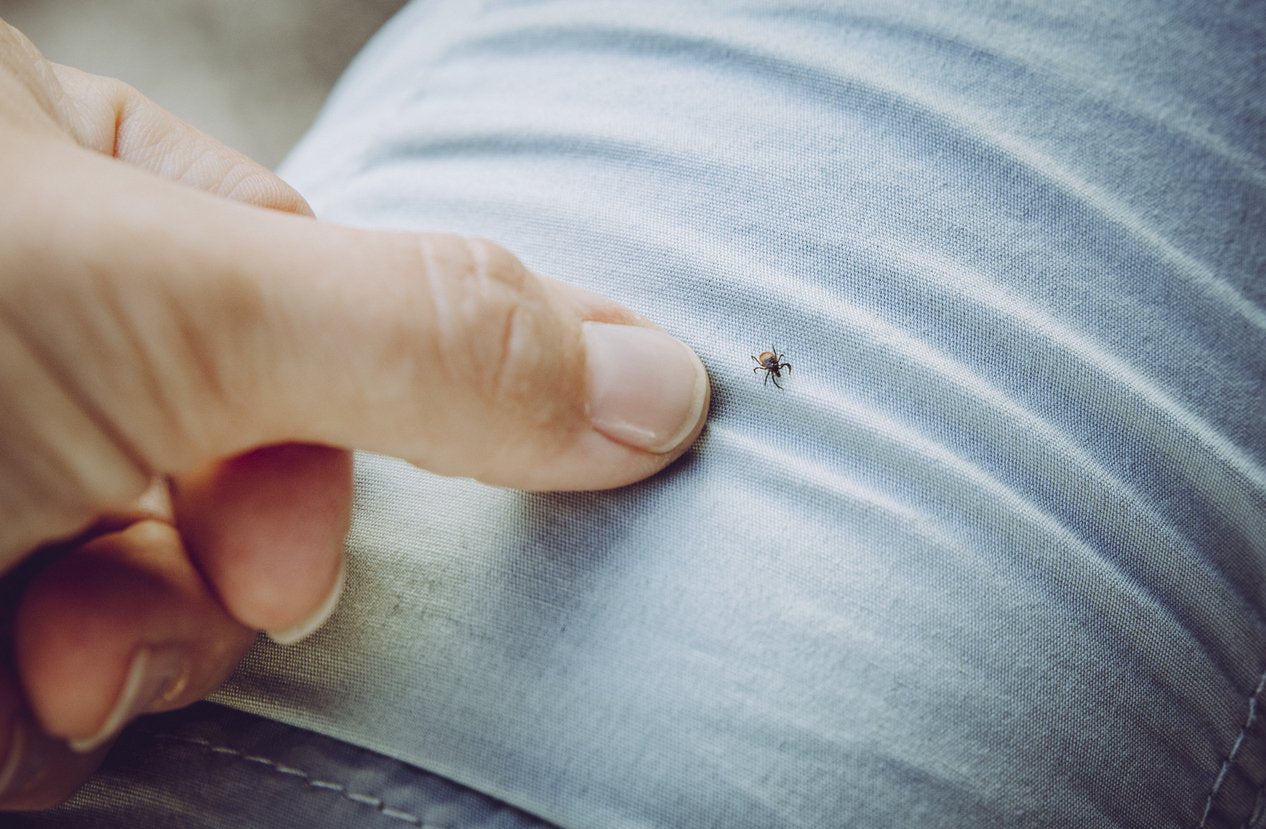
- Health advice
- Nov 30, 2014
Following on from our report on Lyme’s Disease, Naturopath Janne Ramsay, revisits this important topic.
With summer upon us trying to avoid getting bitten by the insects that transmit the disease and what to do if you are, are vital for your health.
“Lyme’s Disease, always a topic I am passionate about, has appeared again in the media. I visit the bush monthly and have had many a tick, although these days I usually take preventative care to avoid any vectors (ticks, midgies, mosquitoes) lurking in our unique and beautiful bushland”.
This last Sunday, Channel 7 revisited the misdiagnosis of Lyme’s Disease and the treatment protocols being offered in Europe. This link provides a summary of the Sunday night show.
What we know is that it is better to avoid catching this misunderstood disease than it is to treat it. But that is easy to say and harder to do.
Last year we provided practical and realistic recommendations on removing a tick and how to avoid that oh so life altering insect bite in our article “Ticked Off – Lyme Disease in Australia” (a useful video on removing ticks is included in this article) and “Repellent of No Repellent, which is the better”.
Important points from the articles include:
How to remove a tick?
- Firstly remove the tick as soon as possible. The longer the tick is on you the more chance you have of infectious transmission.
- Use a specifically designed tick remover or fine-point tweezers.
- It is important to grasp the tick at its mouthparts, as close to the skin as possible (squeezing the body can cause the release of toxins).
- Pull the tick upwards with steady pressure (resistance is common).
- Do not squeeze the tick body as this can increase pathogen transmission.
- Do not try to kill the tick with methylated spirits, petroleum jelly, kerosene or other chemicals as they can make the tick release more toxins and pathogens.
- Wash the bite area thoroughly and hands thoroughly.
- If you notice any symptoms seek medical advice promptly. Contact the Karl McManus Foundation or Lyme Disease Association of Australia to ensure diagnosis and treatment is from a doctor who acknowledges Lyme’s Disease and has been trained on the complete protocol. Your Naturopath can provide advice on how to support your body during treatment. A complete list of expected symptoms can be found on the websites for the Karl McManus Foundation or Lyme Disease Association of Australia.
- Following all of the points above it is suggested to rub Lyclear (a scabies cream) onto the nymph to paralyse the nymph before removal.
- Essential oils such as Kunzea (or tick bush) are thought to paralysis the tick but there is no research evidence.
- Karl McManus Foundation has a Facebook page to keep you up-to-date with the latest news.
Article by Naturopath Janne Ramsay
Related Articles
Recently Viewed
- ${ variant.price | currencyFromCents } | ${ variant.title } ${ variant.price | currency } | ${ variant.title }
Sale


RRP
${ (hoverVariant ? hoverVariant.compare_at_price : product.compare_at_price) | currencyFromCents }
${ (hoverVariant ? hoverVariant.compare_at_price : product.compare_at_price) | currency }
${ hoverVariant.compare_at_price }
${ heroVariant.compare_at_price }
${ product.compare_at_price_min | currency }
Save
%
${ (hoverVariant ? hoverVariant.price : product.price) | currencyFromCents }
${ (hoverVariant ? hoverVariant.price : product.price) | currency }
${ hoverVariant.price }
${ heroVariant.price }
${ product.price_min | currency }
Auto delivery















